I wore my mother’s ashes around my neck. Then I found out her body was abandoned and decomposing in a funeral home
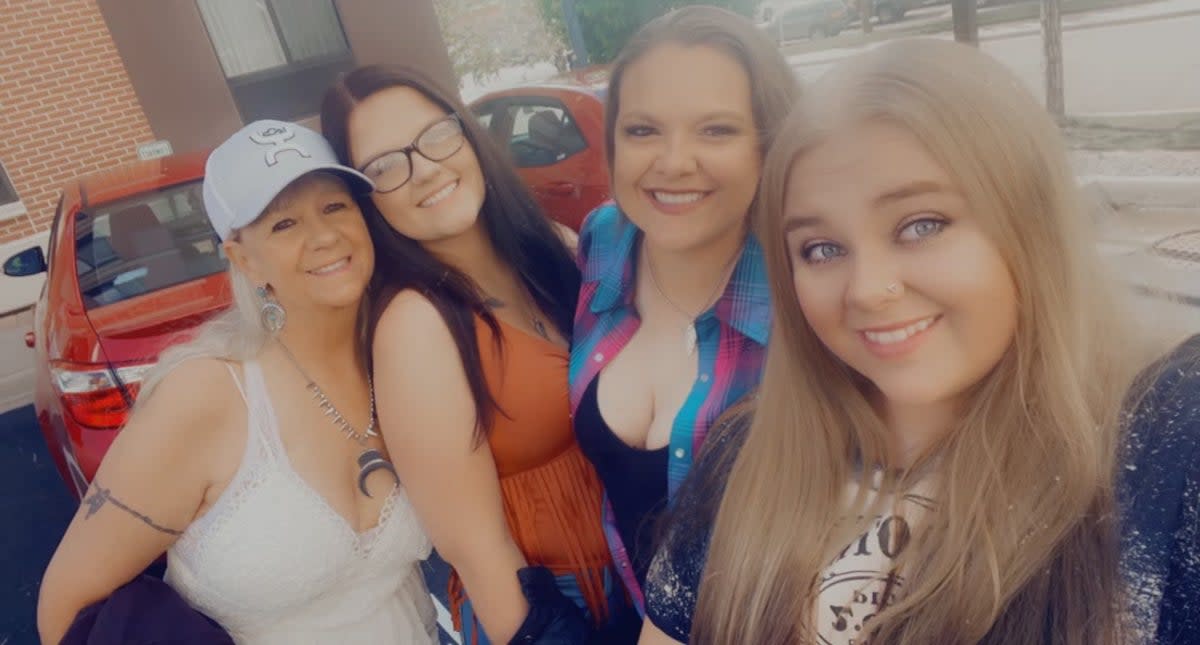
Makayla Pithan Trumbo had been wearing a beautiful necklace containing her mother’s ashes for eight months when she received a frantic phone call last year from her sisters.
Something was happening at Return to Nature funeral home, the Colorado funeral home they’d hired to make arrangements after their beloved mother’s February death, they told her. There was a big police presence at the property in Penrose, Makayla’s sisters continued, and reports of bodies that had been stored improperly.
Makayla, at first, didn’t worry, reasoning that too much time had passed since her mother’s death for her remains to have been caught up in the scandal. The family had also used Return to Nature firstly following the death of her uncle, then the traumatic 2020 stillbirth of Makayla’s nephew Parker. For three years, her sister Haylea had kept a shadow box in her living room containing Parker’s urn, his blanket and ultrasound photos.
As news began to trickle out that nearly 200 bodies had been found amidst horrendous conditions, however, the former certified nursing assistant began doing the math, calculating that remains had likely been kept for significant periods of time. And she couldn’t get those images out of her head.
“I’ve experienced a lot of deaths and seeing what a human body looks like when they first die,” Makayla, 24, tells The Independent. “So I just couldn’t wrap my head around what that building must be like, with all of these different bodies in there – and there are different decomposition levels.”
Her mind then turned to the necklace she’d been devotedly wearing since the death of her 66-year-old mom, Karan Lea Blue, a loving grandmother of 24 who unfailingly called each of her six children every single morning and every single night.
“I took it off immediately, because … what is in here? Is it someone else’s loved ones? Is it just concrete?” she says. “Because if these people are sick enough to do this, how much sicker can they be? What could they have done to this necklace?”
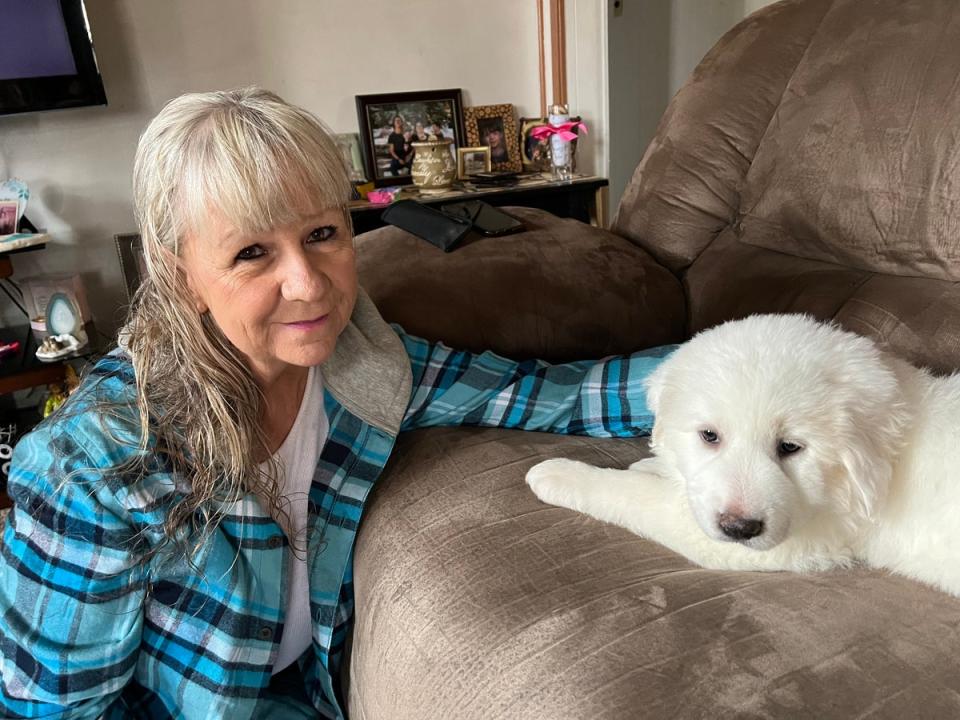
Her mother’s remains, it would turn out, were among those left to languish unceremoniously at Return to Nature. Her uncle, thankfully, had been properly cremated. Her sister is still waiting for answers and confirmation regarding the fate of her stillborn baby – as criminal and civil actions continue in the wake of the horrifying discovery.
“It just kept getting worse and worse and worse,” Makayla says – forcing the family to grieve over and over, news reports of the gruesome finds serving as a constant reminder of loss.
That grief and horror was compounded by revelations that state oversight of Return to Nature – and the funeral industry in general – had been practically nonexistent. Funeral homes did not require a license or training to run and were not regularly or adequately monitored.
“If you look at all these other little businesses out here, like salons even have regulations and food places and stuff like that,” she says. “So you think that someone that is handling dead bodies, someone that is handling biohazard material, should have very strict protocols and should be having regular checks.”
There is federal regulation of the funeral home industry, but that applies mostly to the financial end of the businesses. The rest is left up to the states individually, and Colorado – until last month – was among the most hands-off.
“Every state has their own kind of needs and goals and what they think is important – so we try to not really push down and dictate,” Christopher Farmer, general counsel for the National Funeral Directors Association, tells The Independent. “We have recommendations, we have kind of proposed model laws … but we respect the autonomy of the state.”
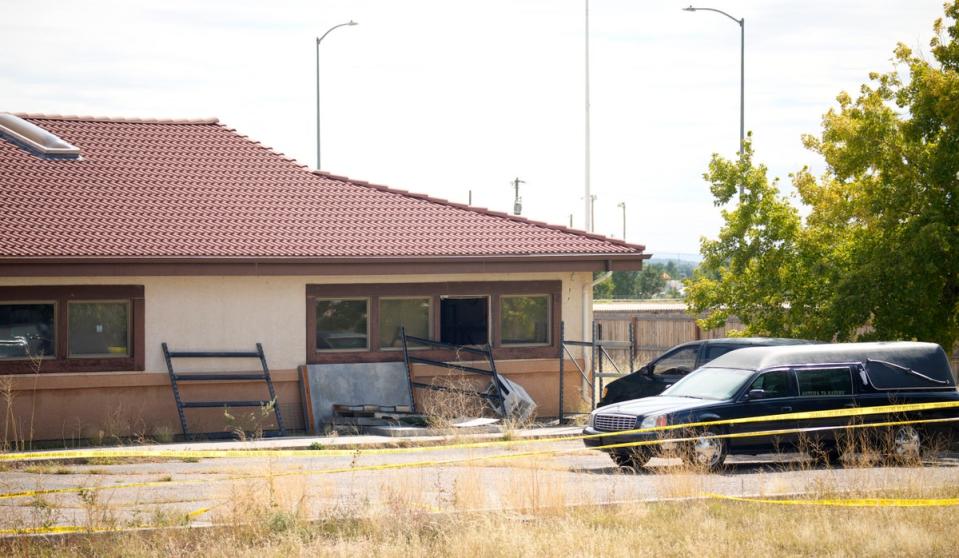
In Colorado’s case, nearly anyone, essentially, could open up a funeral home; neither a degree nor a high school diploma was required. Unlike nearly every other state, Colorado “didn’t license funeral directors or require some certification,” The Denver Post reported earlier this year. “State officials haven’t regularly inspected funeral homes and only devoted one-quarter of one full-time position to regulate 220 funeral homes and 77 crematories.”
“Colorado was, if not the, probably the most lax in the country,” said Farmer, noting the “potential for those bad actors and bad things to happen.”
The Return to Nature scandal was neither the first nor last in recent years highlighting the pitfalls of the state’s dearth of regulation – with offenses ranging from selling body parts to stashing bodies and cremains in residential crannies. When legislation sunsetted four decades ago, new rules were never implemented – and the recent scandals called blaring attention to the consequences.
“No one wants to talk about death or dying; [that], is why legislators avoid changing the law at all within the death care industry,” State Rep Matthew Soper, who helped spearhead the new rules, tells The Independent. “And never in my wildest dreams did I think that I would be the leader in death care and funeral home reform in Colorado … I certainly did not want to be an expert in all things death and dying.”
Soper was introduced to Colorado’s lax regulation after attending a memorial service for victims of another funeral home scandal – this one centering around illegal body brokering. The mother and daughter operators of that business, Sunset Mesa Funeral Home in Montrose, were arrested in 2020 and are currently serving federal prison sentences.
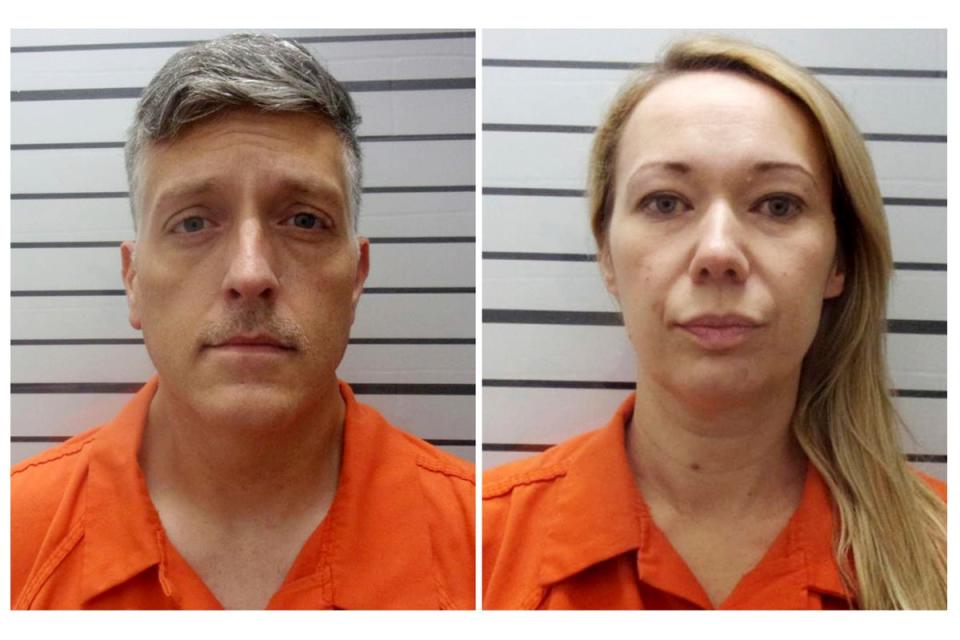
“I was shocked,” Soper says. “I could not believe how few rules there were in this space.”
The Sunset Mesa case had been particularly egregious. Megan Hess, then 46, was sentenced last year to 20 years in prison as part of a plea deal; her mother, 69-year-old Shirley Koch, was sentenced to 15 years after pleading guilty to one count of mail fraud and aiding and abetting.
The pair, from 2010 through 2018, “stole the bodies or body parts of hundreds of victims, and then sold those remains to victims purchasing the remains for body broker services,” the US Attorney’s Office said in a press release announcing the sentences.
Hess, it continued, would meet promise to complete cremation services and return cremains to loved ones – but instead the Sunset Mesa operator “and others would harvest body parts from, or prepare the entire bodies of, the decedents for sale in body broker services.”
Soper liaised with many families devastated by the Sunset Mesa case, recalling: “Almost every victim described it the same way – and that was as a ‘second death’.”
More Colorado families, however, were destined to suffer that same re-victimization.
In February 2020, the mother of a stillborn boy contacted authorities to report that she’d been given more ashes than could fit in an infant-sized urn by a funeral home operated by Shannon Kent, then the Lake County coroner. It would be only one of an avalanche of problems associated with a string of homes operated by Kent and his wife, Staci, in Colorado mountain towns; authorities searching the home discovered everything from foul smells and leaking bodily fluids to unlabeled cremains and animal remains.

Both Kents were arrested and charged with abuse of a corpse and misconduct related to their handling of the body of a truck driver, 42-year-old Viktor Akubuo, whose remains were left for months on end in a coffin. After two mistrials, they were eventually both found not guilty.
Shannon Kent pleaded guilty to two counts of unlawful cremation in December 2022 and was sentenced to six months in jail. As part of a plea agreement, prosecutors dismissed 12 other charges, including five counts of abuse of a corpse.
Staci Kent pleaded guilty last year to one count of unlawful act of cremation, was fined $5,000 and sentenced to one year of probation.
During the same time period, however, bad operators a little further south were mishandling loved ones’ remains in Penrose – though their misdeeds would only be uncovered after neighbors reported a foul smell coming from the property last October. Investigating authorities “encountered stacks of partially covered human remains, bodily fluids several inches deep on the floor, and flies and maggots throughout the building,” The AP reported.
Twenty-three of the bodies had death dates from 2019 and 61 were from 2020, FBI agent Andrew Cohen testified in January – with remains including adults, infants and fetuses.
Return to Nature’s owners, Carie and Jon Hallford, were arrested in November in Oklahoma and subsequently each charged in Colorado with approximately 190 counts of abuse of a corpse, five counts of theft, four counts of money laundering and over 50 counts of forgery.
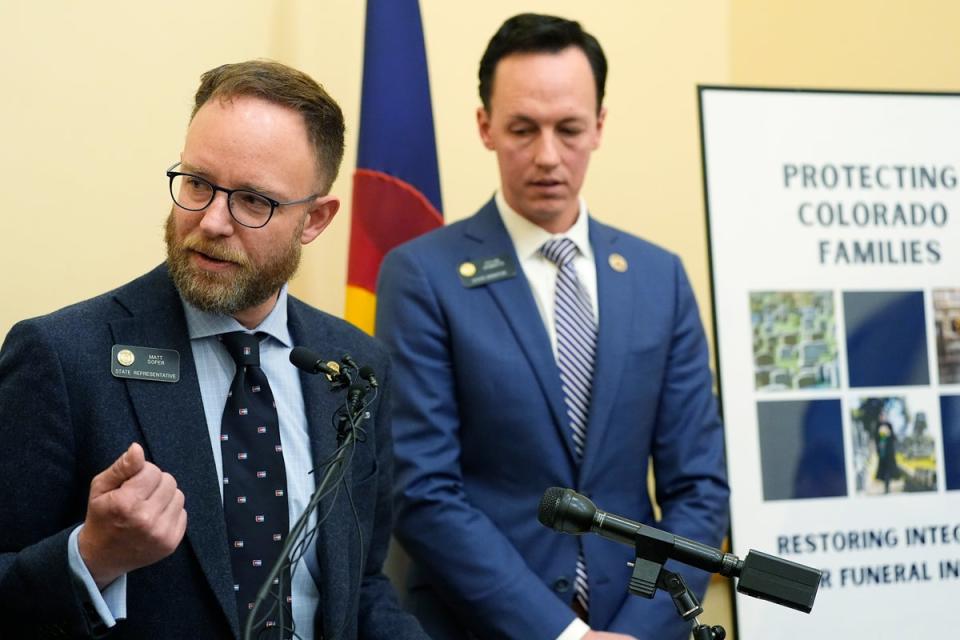
Prosecutors revealed texts in court between the owners in which one suggested disposing of bodies “by digging a big hole and treating them with lye or setting them on fire,” according to The AP.
The Hallfords’ next court date is scheduled for next week, when they are expected to either enter pleas of not guilty or possibly accept a plea deal that would see both serve approximately 20 years in prison. They also, however, face federal charges, pleading not guilty last year to 15 counts of wire fraud.
As the horrors in Penrose were coming to light earlier this year, however, yet another funeral home scandal hit the news. The body of a 62-year-old woman was discovered in a hearse, strapped to a gurney and covered by a blanket, during the February court-ordered eviction of a rental home in the Denver suburb of Littleton, where authorities also discovered the remains of about 30 people.
Miles Harford, the 33-year-old former owner of Apollo Funeral and Cremation Services – which lost its license in 2022 – was arrested and faces felony forgery and abuse of a corpse charges; his arraignment is scheduled for August.
Colorado lawmakers, faced with an avalanche of embarrassing scandals, finally acted. Governor Jared Polis signed two new bills into law in May, bringing the state more in line with the rest of the country. One requires regulators to routinely inspect funeral homes and give them more enforcement power. Another implements licensing for funeral directors and other workers in the industry. They would need to pass background checks and a national exam while possessing degrees and work experience.
“The changes certainly feel satisfying,” Soper tells The Independent. “It feels like the culmination of a legislative lifetime’s worth of work have completely reformed the industry, both criminal laws, business laws, civil laws and regulatory laws, to be able to really save the industry in Colorado and to prevent future victims.”
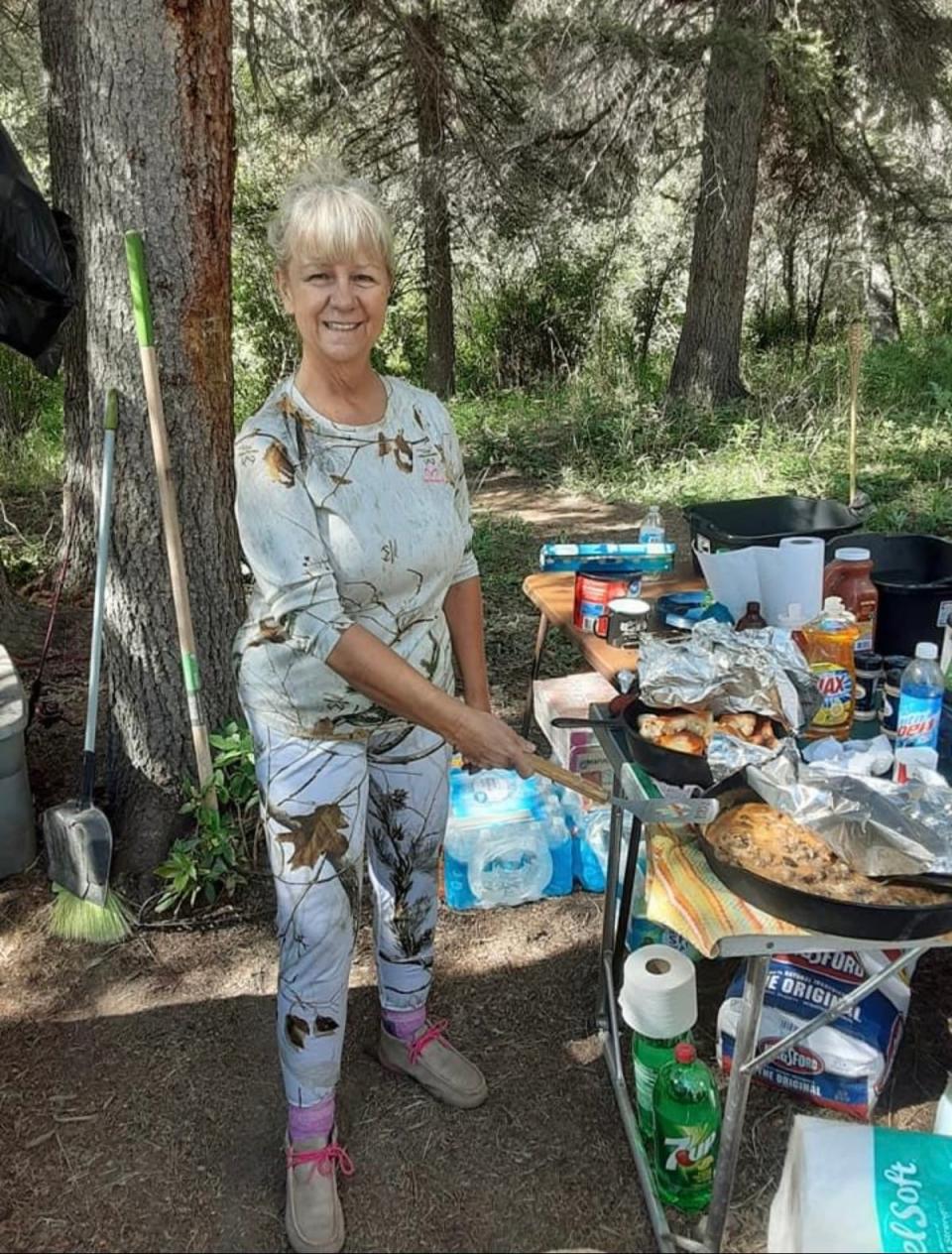
Countless families, meanwhile – like Makayla mourning her mom Karan – continue to grapple with the pain lax regulations caused them.
“She was identified pretty quickly; we were able to get her remains from the coroner’s office, and we had one of the other funeral homes that were offering to do the cremation for free” complete the “proper cremation,” Makayla tells The Independent, reiterating how Karan was “the backbone of our family.”.
“And we all got new necklaces, and we got a new scatter urn, because we’re going to be spreading her ashes.”
The family wants to spread her ashes in Gunnison, a beautiful stretch of Colorado where Karan’s father was a guide and outfitter and presided over thousands of acres. They were hoping to make the journey in August but will likely postpone until next year because “there’s a lot of fresh feelings with the criminal case and now the federal case and everything else.”
“I feel like I just lost my mom all over again,” she says, choking up as she calls her mother “the center of everything.”
Her sister Haylea, meanwhile, remains “in limbo” about the remains of her stillborn son.
“They really just don’t have an answer for her,” Makayla says. “So we don’t know where his body is at.”
Makayla is part of a Facebook group for the hundreds if not thousands of loved ones impacted by the Colorado funeral home scandal, but says she isn’t ready yet to reach out to other families who continue to live the same nightmare.
“I just hope that rules and regulations are put into place and they realize that, even though that person is not in that body anymore, it still affects the people that loved them,” she tells The Independent.
“Because that was their vessel here while they were on Earth, and it still has a lot of meaning behind it.”


